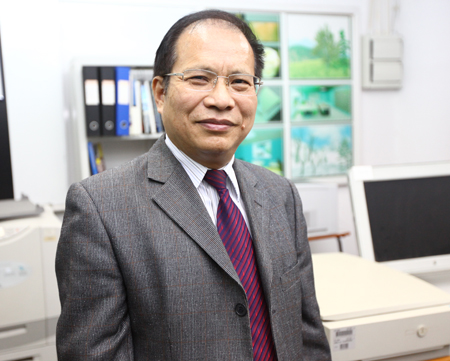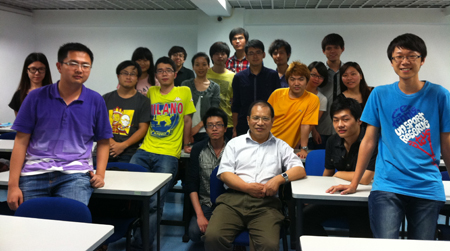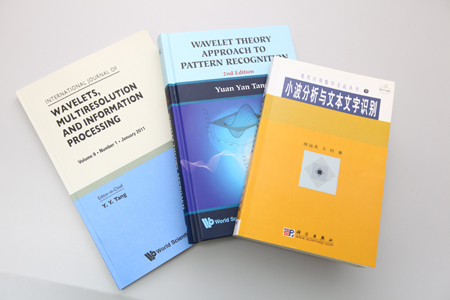UM Chair Professor Tang Yuanyan enjoys an important international status in the field of computational intelligence. He boasts many “firsts”. He was the first to introduce the entropy theory into pattern recognition; the first to establish a theoretical framework for document analysis and interpretation; the first to create an English and Chinese monograph on wavelet theory and its applications to pattern recognition; and the first to launch an international journal and conference on wavelet theory and its applications. What has driven him to attain these impressive achievements? The answer is a burning passion for science and research.
Strict Discipline since Childhood
Prof Tang is of Hui ethnicity and was born in the 1940s in Chengdu, Sichuan. Growing up in a difficult time in China didn’t kill his dreams for the future, which is perhaps largely thanks to his parents who greatly valued education and believed in strict discipline. “Other kids got to play after school and during summer holidays, but I had to study,” recalls Prof Tang. “But I’m grateful to my parents for their strict discipline.”
Working in Aerospace Engineering after Graduation
After graduation from high school in 1961, Tang was admitted to the Department of Radio Electronics at Chongqing University, becoming one of the lucky few to go to college. He graduated from Chongqing University with excellence, and was assigned to work in the now defunct Department of the Aerospace Industry. In 1978 he was admitted to Beijing Institute of Posts and Telecommunications to study systems engineering as one of the first master’s students in China. Exposure to advanced Western technologies made him long to study abroad. He got his wish in 1982 when, nearly 40, he was awarded a PhD scholarship to study at Concordia University, Canada. He was the first Chinese student in the university’s history to be awarded this honour. Two years later, he foresaw the huge potential of computer sciences and applied to transfer to the Department of Computer Sciences, where he studied document recognition and analysis under Prof Ching Yee Suen, fellow of the Academy of Sciences of the Royal Society of Canada.
I Hope My Work Can Benefit the Public
Prof Tang’s role models are Madame Curie and Albert Einstein, and perhaps that’s why despite the fruitful research results he has attained over the years, some of which having played a role in other scientists obtaining 15 US patents and two European patents, he himself has only applied for two research patents. “A patent means money, but it also means more difficulty for others to use your research results,” says Prof Tang. “I’m not doing research for fortune or fame. I hope my work can benefit the public and make some contribution to science.”
Prof Tang joined UM in 201 1. He is one of the nine chair professors at UM. He has published seven books authored, co-authored or edited by him through the World Scientific Publishing Company, one of the world’ s leading scientific publishers, including the monograph Document Analysis and Recognition by Wavelet and Fractal Theories, which was published in 2012. “UM provides good conditions and environment for teaching and research, and when the new campus is put into use, we will have a more advanced scientific research base,” says Prof Tang. “In the future I will continue to conduct in-depth research on pattern recognition, such as remote sensing and image processing, which has extensive applications in many fields like aerospace, security, medical science, agriculture, mining and forestry, etc.”
Grateful for Wife’s Support
Prof Tang is very grateful to his wife for always being there for him. “My wife is very supportive of my work. Whenever I meet some difficulty, she would encourage me, so what I have achieved is as much mine as it is hers,” says Prof. Tang. Although he spends most of the time on campus, he manages to squeeze a weekly movie rendezvous with his wife in his tight schedule. “There needs to be a balance between work and personal life,” says Tang, “Just as a spring stretched too far for too long will lose its elasticity, and so does a person. Watching movies is my way of relaxing my ‘spring’.”
Rousseau once famously said something to the effect that if one sets his or her mind to doing something well, he or she is bound to succeed eventually. Isn’t it a fitting description of Prof Tang!



